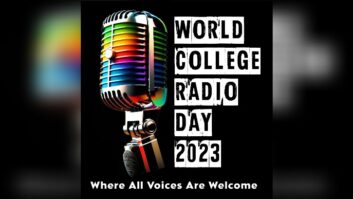The following is from a forthcoming Radio World editorial in print. We provide it here because of the timeliness of the topic.
We regret the outcome of the FCC vote on media rules – its impact, its dismissal of American opinion and its hasty, secretive process.
To say that these changes are moderate is disingenuous. To argue that the FCC was forced to act by the courts is misleading. And to ignore the experience of radio consolidation in the past seven years is foolish.
We are troubled by the idea that a company could control a city’s major newspaper, cable, three TV outlets and eight radio stations. We take no solace in the assurances of Rupert Murdoch and his ilk that they have no intention of taking full advantage of the changes.
We are also disgusted that radio has become the poster child for bad media – that critics now use a simple phrase to conjure their worst predictions. As Commissioner Michael Copps himself put it, “Clear Channelization” of the rest of the American media will harm our country.
And we are troubled by the strong-fisted tactics that Chairman Powell and his supporters used in the weeks leading to the vote.
It’s bad enough that the FCC voted the wrong way – by only one vote – against the apparent wishes of a massive majority of Americans and of many members of Congress and interest groups, on both left and right. And it did so without allowing the public to scrutinize the proposed changes.
This would not be unusual in a typical vote, but this was hardly typical. Copps complained of information being kept from him until the last minute. In-fighting aside, many in Congress and elsewhere begged Powell to delay while the specifics could be understood, and he refused. Why?
We guess at the answer: he did so because the tide of opinion against these changes was rising fast. Although the attention of the public was only beginning to focus on this vote, the FCC was flooded by a historic number of comments, many in the final weeks. The pressure would have been massive a month later. His slim majority might not have stood.
The aftertaste is unpleasant. It makes us wonder whether Powell’s political motives outweigh the public good. Ironically, this vote could well cost his party and his president politically. What a potent issue Powell and the FCC have handed to moderate and liberal opponents of the Bush administration.
And in the background of all this debate is yet another troubling, pervasive problem.
All too often, we in the business forget that the airwaves do belong to the people. We talk about “our licenses” as though we own them. Rather, we are keepers in trust.
Broadcast licenses have been and remain a highly lucrative commodity, regardless of new media and competition, because licensees are sheltered from open competition in their own markets. For instance, individuals here at Radio World would love to own a radio station in New York, but we can’t simply start one. You probably feel the same.
Those licensees are protected from competition from us because they operate under a model that we have all accepted since the 1930s, and for good reason. Until we figure out a way for anyone to start a radio or TV station who wants to do so, the current system holds best.
Those fortunate enough to have won a license should demonstrate a commitment to localism, diversity and competition. And most stations do. But the trend in these rule changes is away from such goals. The protections of core broadcast values slowly have been chipped away over recent decades, while the barriers to entry into the broadcast market grow higher. And frankly, our product has suffered.
Copps was right when he said, “At issue is whether a few corporations will be ceded enhanced gatekeeper control over the civil dialogue of our country; more content control over our music, entertainment and information; and veto power over the majority of what our families watch, hear and read. … This path surrenders to a handful of corporations awesome powers over our news, information and entertainment. On this path we endanger time-honored safeguards and time-proven values that have strengthened the country as well as the media.”
We fear more of the same in years to come.
– Radio World












